Familiarity with crypto cities; Dubai
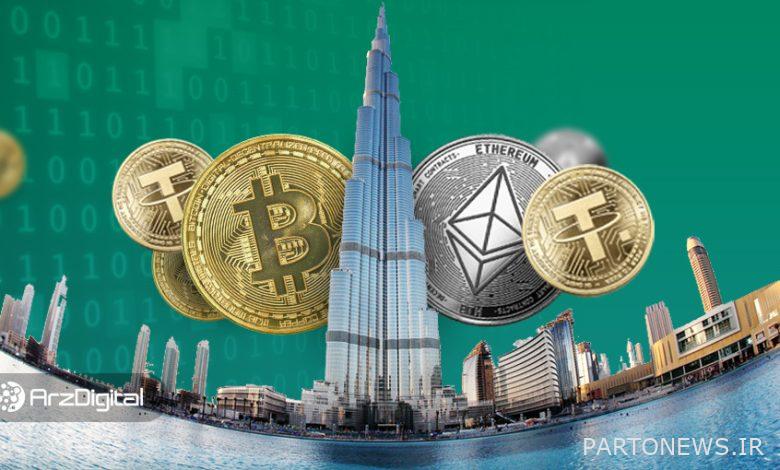
The unique features of digital currencies have caused this technology to penetrate into different societies. Cities that embrace the blockchain and digital currency industry with open arms are actually shaping the industry’s technology, laws, culture, and policies. Laws established in many regions create a suitable platform for blockchain and digital currency businesses, and as a result, businesses and professionals and even users of digital currencies who face numerous restrictions in their own countries are driven to these countries.
Dubai is one of the cities that plans to welcome digital currency businesses from all over the world. In 1833, Sheikh Maktoum bin Baati bin Suhail Al Maktoum officially founded Dubai, the largest city in the United Arab Emirates. Currently, this city has a population of around 4 million people. Arabic is the official language of this city, and English and Hindi are also widely spoken.
In this article, which is taken from an article It’s from the Cointelegraph website, first we’ll take a look at the city of Dubai and its location, and then we’ll explore the digital currency culture in Dubai, the companies and projects active in it, and the city’s financial infrastructure. In the end, we will mention blockchain education in Dubai and training courses in this area in this city; So stay with us until the end of the article.
Dubai
Dubai is one of the largest cities in the United Arab Emirates. This city, which is known as the continuation of the Arabian desert and borders the Persian Gulf, is often compared to a settlement in the heart of the desert. Gleaming skyscrapers, multi-ethnic residents, and a sophisticated business atmosphere create a stark contrast to the desert that was the city’s original origin.
In 1580, before the presence of numerous jewelers and becoming famous as the city of gold, a Venetian merchant gave Dubai the title of “source of pearls”. Originally a small fishing village, this town signed defense treaties with England in the 19th century. In 1901, after the ruler of Dubai announced it as a free port with no import and export taxes, this city quickly flourished as a commercial center.
More than a century later, with the support of huge oil wealth, Dubai became one of the world’s tax-free and commercial crossroads and gained an important position as an international city. This global position showed itself in the best way at the World Expo 2020 in Dubai.
Dubai, the UAE’s largest Free Trade Zone (DMCC), houses a business district in the heart of the city and in the heart of the Jumeirah Towers district. It is through this area that Dubai has been able to provide you with access to 65% of the world’s GDP in 8 hours or less.
Dubai’s location in the middle of Africa-Eurasia makes it a point of commonality and a place to visit for residents of Europe, Africa, Asia and the Middle East. According to the geographical and cultural location of this city, non-native citizens make up almost 90% of the population of this city. Accordingly, Dubai International Airport (DXB) is one of the busiest airports in the world, handling 88 million passengers annually.
The large population of immigrants gives this city an undeniable energy. Attractions such as Burj Khalifa (the tallest building in the world), Dubai Mall (the largest mall in the world), Burj Al Arab (a seven-star hotel), the archipelago of the world, and Palm Jumeirah, which were designed and built with sand in the ocean, attract about 20 million tourists in Sal helps. The large number of tourists naturally includes the cryptocurrency rich, and this means one thing: a lot of conventions and gatherings in this area.
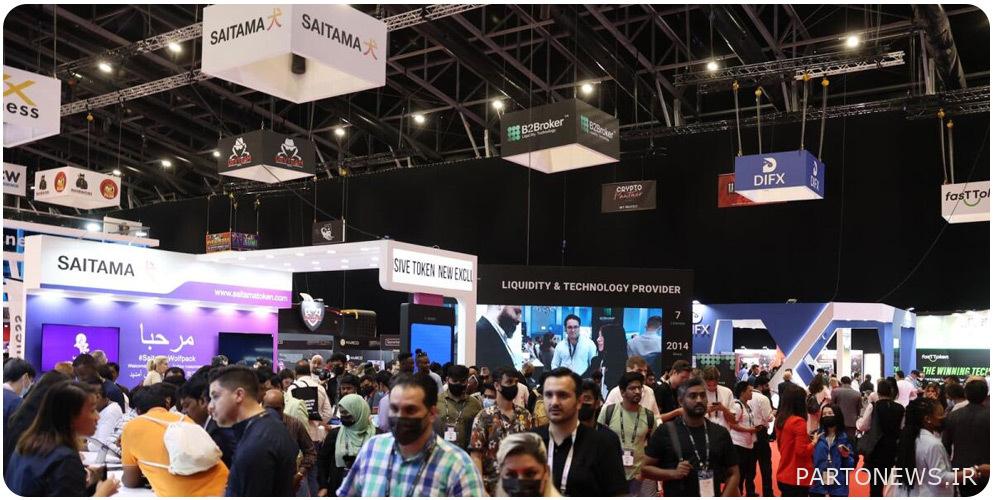
In general, the country is very much in favor of digital assets, even celebrating its 50th anniversary with an NFT stamp. In fact, Dubai, as the business hub of the United Arab Emirates, is considered a pioneer in the field of digital currencies in the region. Even Changpeng Zhao, CEO of Binance Exchange, went to Dubai in October 2021 to buy an apartment. Zhao said at a forum in Singapore about this: “The government there is making great progress and doing a very good business in the field of the environment.” He added that he plans to have a long-term partnership with Dubai. In December 2021, Binance signed a cooperation agreement with the Dubai World Trade Center Authority. Recently, this office has become a legislative body in the space of digital currencies.
The culture of digital currencies
Despite the Corona epidemic in 2021, the city hosted events related to digital currencies on a large scale. In May 2021, AIBC UAE, an artificial intelligence and blockchain conference, was held in Dubai Festival City near the Dubai Creek Tower construction site. In October 2021 (1400 Mehr), several events such as Crypto Expo Dubai and World Web 3.0 (WOW Summit) and the Future Blockchain Summit, part of the GITEX exhibition, will be held in Atlantis Palm. became.
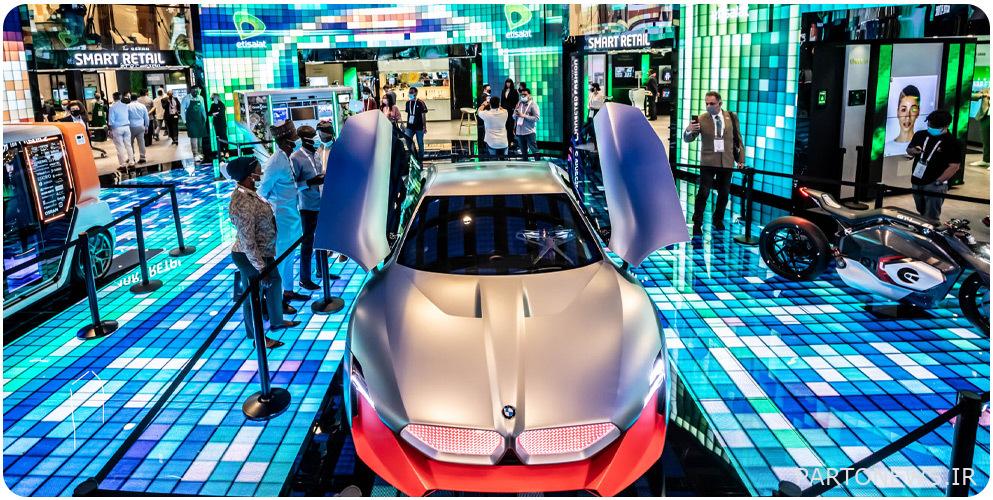
When we compare the digital currency culture in Dubai with the digital currency culture in Silicon Valley, Miami and Berlin, we see that the Dubai culture is clearly more traditional and formal. During the summer heat, Dubai becomes an indoor city equipped with air conditioning and corporate atmosphere. Meanwhile, the Bitcoin 2021 event in Miami resembled a beach music festival both in terms of atmosphere and attire, with techies still wearing not-so-formal hoodies.
Just as in Miami, yacht parties are a popular event for conference visitors and provide opportunities for influencers, investors, entrepreneurs, traders and journalists, in Dubai, watching the views of the Palm Atlantis provides a similar experience and closer relationships for them. Kirill Mishanin, one of the co-founders of Infodriver Capital, describes Dubai as an attractive place to start a business. He says:
Dubai is a very favorable city for digital currencies and blockchain. You can easily start digital asset related company in DMCC free zone with zero tax. Also, there are many events sponsored by the government. At the same time, it is easy to buy a car or property with digital currency in this region.
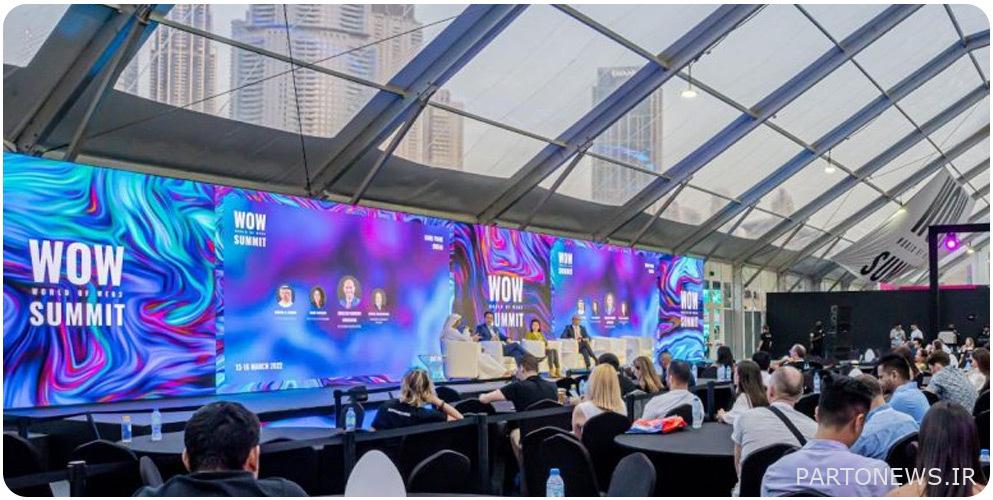
In addition to conferences, there are a series of other digital currency events, some of which are held informally and others are organized as intranet sessions; From rooftop parties to smaller team seminar presentations and blockchain team sessions. Among these events, there is a permanent EcoX blockchain networking event that takes place every week in the Conrad Hotel hall in the style of a panel discussion.
Active companies and projects
The UAE operates a number of free zones. In free zones, non-citizens and non-residents can easily establish their companies to obtain visas and business permits. DMCC is one of these free zones that, in addition to trading gold, diamonds, tea and coffee, also hosts the DMCC cryptocurrency center in the glamorous Diamond Tower overlooking Dubai Marina. Here, blockchain companies do not pay taxes and can easily obtain residence visas for owners and employees and their families.
In early 2021, DMCC signed a contract to build a 100,000-square-foot precious metals refinery that uses blockchain in the form of stablecoins to track production and issue financial assets. These stable coins are: GoldCoin, SilverCoin, PlatinumCoin, PalladiumCoin and RhodiumCoin. These stablecoins are built on Ethereum and each unit represents one gram of related metals.
There are over 400 cryptocurrency businesses in the city, and Ahmed Bin Sulayem, DMCC’s CEO and CEO, expects that number to grow to more than 1,000 by 2023. Marwan Al Zarouni, CEO of Blockchain Dubai, also supports this view. He considers Dubai to be a blockchain-supporting city and wants to create regulations for this industry. Alzaroni says:
Five years ago, you wouldn’t have seen people coming to Dubai to start cryptocurrency businesses. […] We are open minded and willing to change the rules for good reason.
The Dubai International Trade Center (DWTCA) is another free zone and has put in place specific regulations to help attract companies involved in cryptocurrency trading. Maryam Al Suwaidi, CEO of the United Arab Emirates Securities and Exchange Organization, said DWTCA seeks to support and support businesses that have blockchain technology infrastructure and digital currencies.
Dubai is home to many digital currency companies, including BitOasis and MidChains. These two companies are located near Abu Dhabi, the capital of the United Arab Emirates. Ola Doudin, the CEO of the BitOcean exchange, recently collaborated with the Dubai Police to establish security regulations for cryptocurrency investments in the region.
Financial infrastructure
In addition to the zero tax rate for companies in Dubai, the personal tax rate for Dubai residents remains zero percent on all types of income regardless of whether it is earned in Dubai or elsewhere. Such an important advantage makes this city a destination for cryptocurrency traders. Of course, this law does not apply to citizens of the United States, which is one of the countries whose non-resident citizens are still required to pay taxes.
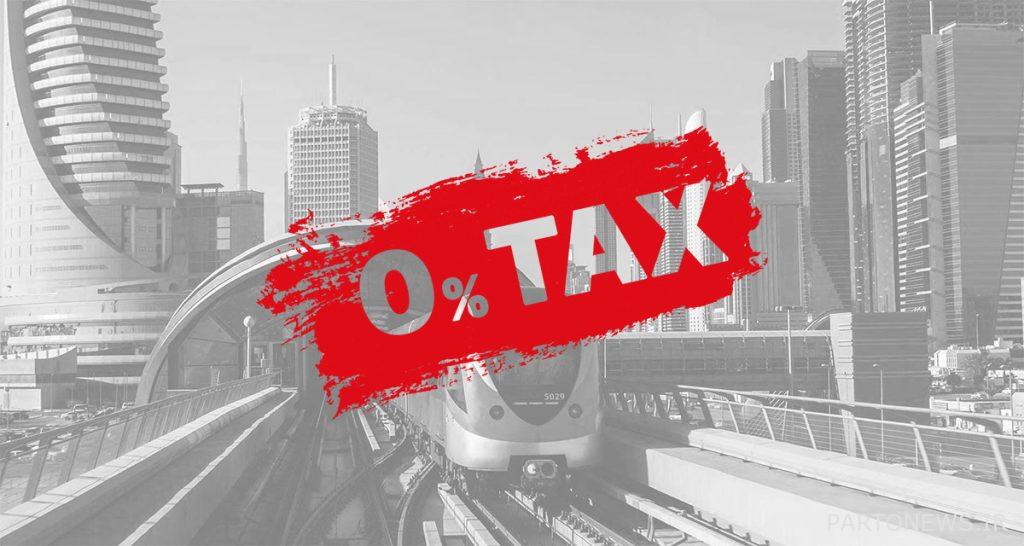
Since there is no tax, concepts such as tax returns are foreign to Dubai residents. Although individuals are under no obligation to report their business activity to the government, companies are naturally required to comply with free zone laws. It goes without saying that a 5% value added tax based on the dirham, the currency of the UAE, is charged to companies based in areas other than free zones.
Although there are a number of local banks operating in this city, the facilities of using a bank account are not fully available for tourists. The lack of tax laws in this country caused the United Arab Emirates to be temporarily added to the list of tax evasion destinations of the European Union in 2017; Of course, the name of this country was removed from this list in 2019.
In March 2021, the government tried to stir up public opinion about cryptocurrency legislation, particularly in the area of security token launches. They intend to facilitate digital currency transactions in this country with appropriate legislation.
In which area of Dubai are most digital currencies spent?
Kiklabb is a free zone where clients can rent office space on the historic Queen Elizabeth II cruise ship now docked in Dubai. The rent of this ship can be paid with Bitcoin, Ether and Tether; But if you are looking for an investment further away from the Dubai Marina, Elite VIP Yacht Rental Dubai is also possible with Bitcoin. They consider this payment method prudent and suitable for those who intend to keep their travel expenses hidden. Even several cases of selling yachts in exchange for bitcoins have been registered in this country.
Visitors who want to drive down Sheikh Zayed Road in a Lamborghini or Rolls Royce can visit the OneClickDrive website and rent almost any type of vehicle using digital currency. Those looking to stay in Dubai can buy their car from Export A Car. They also claim to accept any digital currency for selling their vehicles. From Audi 2001 to McLaren and new Porsches are sold on this website. JetFinder even offers a discount for those who plan to pay for private jet services with Bitcoin or Ether.
In 2019, a Bitcoin ATM was installed in a hotel in Jumeirah Beach Residence; But it was removed after a week after the country’s authorities ran into problems with its lack of KYC requirements.
Education in the field of digital currencies
In 2018, the Ruler of Dubai, Sheikh Mohammed bin Rashid Al Maktoum, opened the Dubai Blockchain Center, an influential educational center in this field. The center helps organizations use blockchain as infrastructure. Dubai Blockchain Center offers a course with 45 training videos with the possibility of issuing a certificate, through which participants can receive the relevant certificate after participating in the exam and passing it.
Dubai University also offers a 120-hour course to provide a professional diploma in the field of basic basics and blockchain development to beginners in this field. The University of Wollongong also has a five-day training program for blockchain developers.
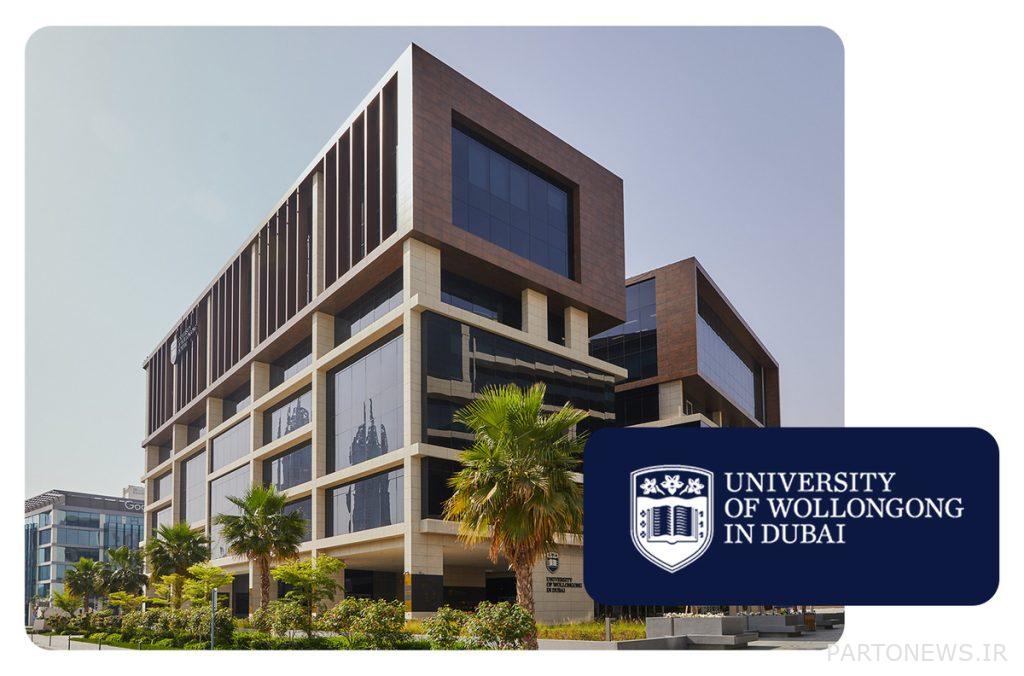
Conclusion
Although there is still no single definition of crypto-cities, it can be said that a crypto-city should have Bitcoin ATMs and a large amount of businesses that accept digital currencies as payment. Also, a vibrant ecosystem of digital currencies and rules facilitating user activity are also necessary for the crypto city.
Dubai is one of the cities that is trying to provide all these facilities and capabilities. The attention of the authorities of this city to the details of the creation of the crypto city and the tax exemption rules for businesses in this area have made Dubai one of the main destinations for activists in this area.

